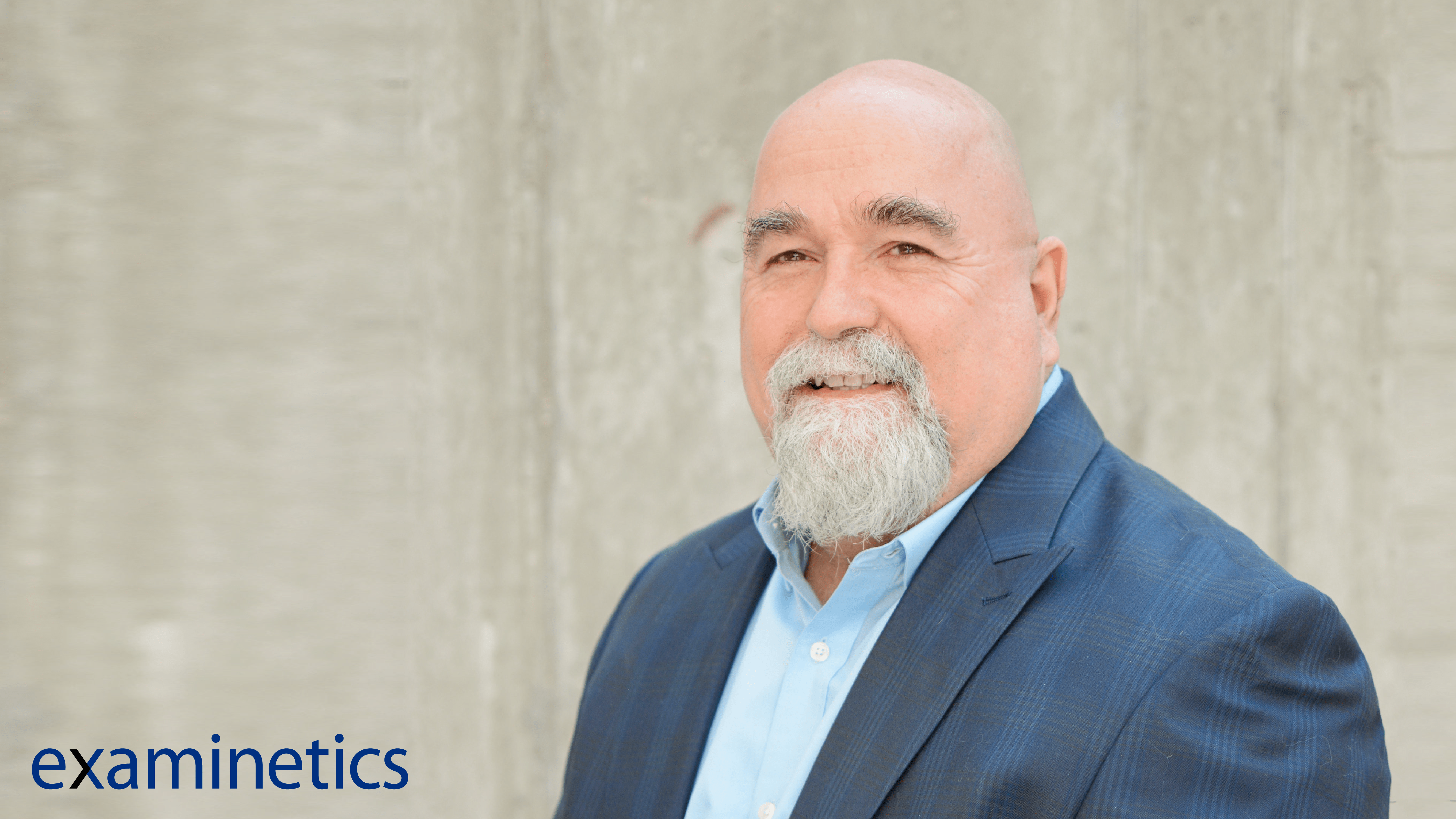1. Tell us a little bit about your role and how your role contributes to the overall mission of Examinetics.
I’m a Supervisor of Field Services, where I provide 24-hour support for our field health specialists. My job is to help our field staff out in any way that I can. I jump in when a technician comes across something they haven’t encountered, needs troubleshooting with equipment or testing protocols, calls in sick or needs help with travel coordination. That’s my role - to help out. I also serve as a technician both on our mobile units and MMP units when needed.
My role contributes to our company mission by helping clients receive excellent service through our qualified technicians and technology. When it comes to the services we are providing, I want to make sure our technicians are well prepared with the knowledge they need and the technology to complete the job.
2. What kind of skills are necessary in your role?
There are a variety of skills necessary for this role. To be able to multitask, listen, provide positive and negative feedback, remain flexible, and prioritize responsibilities are all important skills.
The job can be a challenge when two different field specialists need me, since I can’t be in two places at once. So I need to come up with a system to prioritize my time and activity. I want all the techs to feel like they are being taken care of. I particularly enjoy visiting newer technicians in the field to make sure they are okay. Especially if it's their first week when everything feels new and daunting.
3. What's the most rewarding part of your job?
When a field technician “gets it.” When a field tech becomes truly independent and sufficient, I feel a sense of pride. I’ve never been a parent, but I would assume it would be similar to when a child leaves the house and is successful. It feels like an accomplishment when a tech and I team up and solve problems he/she is facing.
Also, I like to fix things. I like to find a solution to an issue and correct it. A job like this allows me to fix and help in tangible ways. Whether it's testing schedules, protocols, DOT issues, travel or finding the right tech for the job, I enjoy the challenge. Overall, I enjoy making sure our clients’ workforces are kept healthy and in good shape.
4. Can you tell us a favorite story from the field?
One time, I stayed in a ghost hotel in Ione, California. I had to cover for a technician and it was the only hotel within an hour of the testing site. The hotel used to be the saloon and was founded during the gold rush.
When I checked in, the receptionist upgraded my room at no charge and gave me a king size room. I was handed the original metal key and walked up the creaky wooden stairs. I got to my room and chatted with friends on Facebook, saying, “Man, this is a really cool place!” One of my friends says, “You do know that place is haunted, right?”
My friend sent me a link to an article about the supposed haunting of the hotel. The ghost’s name was something like Harold or Harry, a short, stocky, goateed bald man who visits Room 13 in the night. He shakes the bed and yells, “Get out of my bed!” Funny enough, I was in Room 13 that evening.
While a ghost did not visit me that night, it was a fun experience.
5. What have you learned from your time here?
I’ve been at Examinetics for 10 years. In that time, my roles have reconfirmed my management style. I try to manage everyone in the same compassionate manner, yet I need to tailor my style to each individual personality. I work with more than 70 technicians and each learns at their own pace.
In the past, I was a general manager for transit systems. There, I learned to keep my desk clean. By that, I mean when something is on your desk, take care of it. Don’t procrastinate. The same thing applies to my work today.
I think that communication is ultimately the most important thing. When people think about a role like this one, some might think safety is most important. While it’s definitely vital, communication is what makes it all work. Communication brings your service, process and values to life, including safety.
---
This is business-to-business information intended for EHS (environmental health and safety) professionals and not intended for the final consumer. Companies should check the local regulatory status of any claim according to their individual needs, requirements and intended use.
